On the Rise
LARA BUESO BACHTitle: Senior associateExperience: Weil, Gotshal & Manges, 2010-presentEducation: University of Michigan…
May 07, 2018 at 09:00 AM
80 minute read
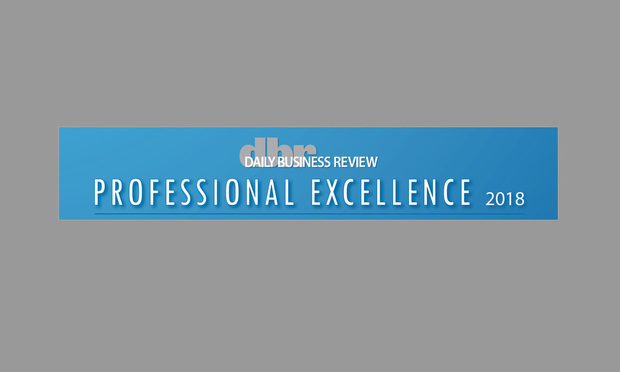
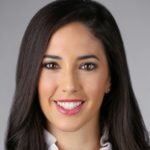
LARA BUESO BACH
Title: Senior associate
Experience: Weil, Gotshal & Manges, 2010-present
Education: University of Michigan Law School, 2010, Rollins College, 2007
What drew you to a career in law? Early on, I recognized that obtaining an understanding of the law in combination with oral advocacy skills empowered people to be change agents. Today, I am thankful that my firm allows me to be a voice for our corporate clients and maintain a robust pro bono practice where I represent victims of human trafficking.
Have you set a specific goal that you want to achieve in the next year? As the President of the Miami-Dade chapter of the Florida Association for Women lawyers, I hope to encourage senior firm leaders to mentor and sponsor junior women lawyers. Women have been graduating law school at rates almost equal to men for close to two decades. But women are not progressing to leadership and partnership roles at the same rate as men. This has to change and I believe it can change, but it requires a concerted effort by the entire leadership community (firms, clients, judges, and law schools) to figure out the source of the problem and rectify it.
What has been your proudest career moment and your biggest hurdle? Being elected President of Miami-Dade FAWL. It is humbling to be recognized and entrusted with this responsibility by a respected group of peers. This opportunity, however, also presents challenges. I hope that I can not only meet, but exceed the expectations of those who gave me the opportunity to serve Miami-Dade FAWL in this capacity.
Where do you fit on a 1-10 work-life balance scale with 10 being nirvana? Please explain. With my litigation schedule, bar association commitments, and two toddlers at home, striking the right balance can be difficult. I am fortunate to work at a firm that recognizes the value of family and encourages me to strike the right balance for me. This is admittedly hard to do. But I have learned that work-life balance is fluid; I may not achieve nirvana every day (if ever), but I try to remind myself every day how lucky I am that I get to dedicate my life to the pursuit of justice. It also helps to have a partner (also a lawyer) that supports me fully and shares in the parenting responsibilities.
What is the top quality that you've used to succeed in the profession? Maintaining civility and professionalism in an environment of zealous — and sometimes overzealous — advocacy.
Who is your favorite mentor and why? I am not sure I have a quantifiable “favorite.” I'm fortunate insofar as I've mined wisdom from a countless many throughout my life and career. This includes supportive friends and relatives, trailblazing female attorneys that helped shatter antiquated norms, to my colleagues at Weil, who inspire me every day with their intellectual curiosity. I also harbor a great deal of respect for our judiciary, whose public servants continue to labor tirelessly and selflessly in furtherance of justice, despite being subject to increasingly political attacks from self-serving interest groups.
What's the best advice anyone has ever given you? Think twice before you hit “send.”
What trends are you observing in the profession that you're excited about? The increasing focus on civility, mindfulness and mental health. The pressure inherent to our profession requires it.
What is the greatest challenge you see for the legal profession? Defining the line between advocacy and incivility.
If I weren't a lawyer, I'd be … A doctor, because I was only given two options growing up.
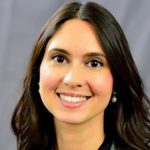
SHAHRZAD EMAMI
Title: Advocacy Director of Affordable Housing/Community Development and Director of Florida Community Development Legal
Experience: Legal Services of Greater Miami Inc., 2007-present
Education: University of Miami School of Law, 2006; Vanderbilt University, 2003
What drew you to a career in law? The human element. I was an undergraduate theater and communications studies major so the study of the human condition was very intriguing to me. I wanted to know how and why people made decisions, what motivated them, and how I could be a positive influence on their actions and provide guidance. I felt a career in the law would be most effective to that end.
Have you set a specific goal that you want to achieve in the next year? Working on the Florida Community Development Legal collaborative.
What has been your proudest career moment and your biggest hurdle? My proudest career moment has been the funding and expansion of the Community Development Division at Legal Services of Greater Miami from one to six attorneys and the funding and creation of the Florida Community Development Legal collaborative so that we are able to provide more assistance to community groups and small businesses engaged in affordable housing and community development activities. Since I work at a nonprofit law firm, our biggest hurdle is trying to secure the much needed funding so that we can reach a larger client base and expansion of our services to the low-income communities we serve.
Where do you fit on a 1-10 work-life balance scale with 10 being nirvana? Please explain. Work-life balance is important to my employer and to the overall culture at Legal Services of Greater Miami. Our attorneys work tremendously hard and participate greatly in the communities that we serve, oftentimes committing to weeknight and weekend events. With that being said, we are all here because we are passionately committed to equal justice, so the work doesn't seem like work. Outside of work events are also planned, like our participation in the corporate run. I would say I strive for a 10 but in reality hover around 7-8. I do spend a significant amount of time with my family, which is very important to me.
What is the top quality that you've used to succeed in the profession? Grit and determination.
Who is your favorite mentor and why? My parents, they were successful in imparting both work ethic and a sense of community obligation when I was growing up. I learned from them that what we do everyday has meaning and impacts those around us, so it's important for that impact to be positive.
What's the best advice anyone has ever given you? My dad always told me, “You can do anything you put your mind to, if you visualize succeeding at something, it will happen.”
What trends are you observing in the profession that you're excited about? More and more young attorneys are getting involved in their communities through volunteer work or pro bono opportunities, this is true for law schools as well in that clinical and experiential learning are now just as important as doctrinal classes.
What is the greatest challenge you see for the legal profession? Unfortunately I see many lawyers unhappy with their day to day work, especially if they practice in litigation or another contentious area of the law. I think we need to do a better job at civility and practicing humanity towards others, including other attorneys and opposing counsel.
If I weren't a lawyer, I'd be … A professor or an actress, I'm actually an adjunct professor at UM Law, so I'm grateful I've be able to check one of these boxes!
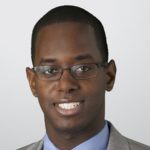
PEDRO GASSANT
Title: Associate
Experience: Holland & Knight, 2012-present
Education: University of Pennsylvania Law School, 2012; Florida State University, 2009
What drew you to a career in law? The Terri Schiavo case is what drew me to a career in the law. That case involved a young woman who suffered a heart attack and was left in a vegetative state. Her husband, who had been appointed her legal guardian, was convinced that his wife did not want to live in that condition and requested that the feeding tubes be removed. What happened after that is what drew me to the law. I was fascinated by the fact that it was lawyers — not doctors — who determined whether a hospitalized patient would live or die. I knew then and there that the practice of law is paramount in our society.
Have you set a specific goal that you want to achieve in the next year? No, I have not.
What has been your proudest career moment and your biggest hurdle? As a first-year associate I was given the opportunity to argue a Hague Convention case on the International Civil Aspects of Child Abduction before the U.S. District Court for the Middle District of Florida. My client's son had been taken from him by his ex-wife and brought into the U.S. My job was to convince the court that my client's ex-wife had violated the law and that his son should be returned to him. I argued the case before the federal judge and won. There was nothing like seeing my client reunited with his son and thinking that I cannot believe that I just argued a case in federal court.
Where do you fit on a 1-10 work-life balance scale with 10 being nirvana? Please explain. I
believe that work-life balance is a misnomer. From my perspective, it projects from an
unrealistic paradigm. I prefer to think about things from the perspective of whether the things
that I am doing are aligned with my passions, drives and commitments.
What is the top quality that you've used to succeed in the profession? Diligence. Nothing can be substituted for plain vanilla, old-fashioned hard-work.
Who is your favorite mentor and why? My father. To the extent that I have achieved anything
that can be called success, it would be attributed to the guidance and unwavering commitment of my father.
What's the best advice anyone has ever given you? Blossom where you are. There are so many times in our lives that we focus on the things we want, or the things that are missing, that we miss the lessons that are intended for us to learn in our current position. These “lost” lessons further limit our ability to grow. If we simply focus on making the most of the situation in which we find ourselves, it can go a long way in helping us to achieve our innermost desires.
What trends are you observing in the profession that you're excited about? The increasing use of technology. There are a lot of opportunities to increase efficiencies, eliminate waste and provide more value to our clients through the use of technology.
What is the greatest challenge you see for the legal profession? Adapting. Technology is causing major shifts in our profession. Yet, there are a lot of law firms that are practicing just like they did 20 or 30 years ago. Technology will have strong implications on the billable hour, the number of attorneys and even the need for office space, and adapting to these challenges will be essential for every law firm and practicing attorney.
If I weren't a lawyer, I'd be … A doctor or an engineer. In my house, my dad gave us only three
choices.
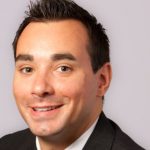
CODY GERMAN
Title: Partner
Experience: Cole, Scott & Kissane, 2009-present
Education: Arizona State University College of Law, 2008; Loyola University New Orleans, 2005
What drew you to a career in law? My family has been in the car dealership business for generations. I wanted to go against the grain and sell a service instead of a product.
Have you set a specific goal that you want to achieve in the next year? I would like to double my individual book of business from last year.
What has been your proudest career moment and your biggest hurdle? I was one of the youngest lawyers in my firm to ever be named partner, which is something for which I am very proud. The biggest hurdle has been balancing work-life balance as an ambitious young lawyer. My main life focus for the last decade has been my career, which has caused me to turn down a lot of fun, rest and relaxation.
Where do you fit on a 1-10 work-life balance scale with 10 being nirvana? Please explain. 3. I'm able to unwind after I'm home from work; however, I'm notoriously responsive to client emails at all hours of the day.
What is the top quality that you've used to succeed in the profession? I have strong intuition. This allows me to trust my judgment and think quickly and confidently.
Who is your favorite mentor and why? Richard Cole. Richard is an excellent lawyer and businessman, which is a rare combo. I was fortunate enough to be trained by him as young lawyer. This allowed me to strengthen my legal skills and learn the business of law.
What's the best advice anyone has ever given you? It is so much easier to be nice, to be respectful, to put yourself in your customers' shoes and try to understand how you might help them before they ask for help than it is to try to mend a broken customer relationship.
What trends are you observing in the profession that you're excited about? There are many great new judges locally. It is always exciting when you have your first hearing in front of a new Judge and the judge impresses the courtroom with their preparation and intellect. We are fortunate to have a great judiciary.
What is the greatest challenge you see for the legal profession? There are so many young lawyers graduating without a sustainable job market. I see more and more law school graduates opening their own firms before they are really ready to do so.
If I weren't a lawyer, I'd be … A guitar player in a rock band.
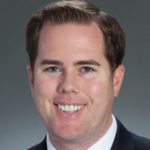
ANDREW GORDON
Title: Partner
Experience: Hinshaw & Culbertson, 2014-present; Fowler White Boggs, 2011-2014; Ruden McClosky, 2009-2011
Education: St. Thomas University School of Law, 2009; Florida State University, 2006
What drew you to a career in law? As an undergrad, I interned for a legislative advocacy
group in Tallahassee and worked at a respected Tallahassee law firm. Between my internship at
the Capitol and my time at the law firm, I was hooked — politics, civics and the law became my
interests, which led me to law school.
Have you set a specific goal that you want to achieve in the next year? Work out more!
What has been your proudest career moment and your biggest hurdle? Making partner, and the continuous process of balancing work, community involvement and family commitments.
Where do you fit on a 1-10 work-life balance scale with 10 being nirvana? Please explain. 7. The last year has been a complete whirlwind for me — my wife and I welcomed our son, Colton, to the world, I made partner, my book of business has expanded, and I continue to get more involved in the Fort Lauderdale community. Despite all of this, I am extremely content, both professionally and personally, which I believe is a true testament to the emphasis my firm and I place on maintaining a great work-life balance.
What is the top quality that you've used to succeed in the profession? A strong work ethic.
There is no way around it. Without a strong work ethic, I just don't see how someone could be
successful by any measure in our profession.
Who is your favorite mentor and why? I have been lucky to have many mentors at different
stages of my life and career. Each one has seemed to show up at just the right time to assist me
with navigating my personal and professional life. For the last four years, Cheryl Wilke, the
managing partner of my firm's Fort Lauderdale office, has been a mentor to me, teaching me
invaluable lessons about business development and client service — lessons I have implemented and which likely led to me making partner at a relatively young age.
What's the best advice anyone has ever given you? What we do as attorneys oftentimes
requires laser focus. One of the first partners I worked for continuously emphasized to me the
importance of compartmentalizing things. I still utilize that advice to this day — both
professionally and personally. While there are certainly times we all have to multitask, when it
comes to the important things at work, in the community or at home, there are times we all need to be laser focused on what is in front of us and nothing else.
What trends are you observing in the profession that you're excited about? The general
acceptance that attorneys need to have a meaningful work-life balance. If we want to attract top
talent to the legal profession and retain this talent, we have to be able to demonstrate that the
profession consists of more than just billing hours. We have to be able to show how well-rounded attorneys are — whether by involvement in the bar, in the community or at home with families.
We can't just be committed to exceeding billable hour targets. Without working toward this
new paradigm, law firms will be recruiting from less desirable applicant pools and will suffer
from greater attrition rates.
What is the greatest challenge you see for the legal profession? More efficiently and
effectively meeting the civil legal needs of the disadvantaged, low income and moderate income
members of our communities.
If I weren't a lawyer, I'd be … A foreign service officer. The summer before I started law
school, I spent two months volunteering in Tanzania teaching English to elementary school
children. That was one of the most enjoyable and rewarding experiences of my life. I think a
career as a foreign service officer would bring back that satisfaction while also involving my
interests in politics, civics and the law.
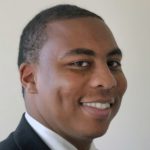
EDDIE L. HOLIDAY III
Title: Assistant State Attorney, Career Criminal & Robbery Unit
Experience: Miami-Dade Office of the State Attorney, 2014-present
Education: Howard University School of Law, 2013; Howard University, 2010
What drew you to a career in law? As a young child, I wanted to be a cowboy with a horse or a judge. When I was 5 or 6, my mother would tell me stories about African-American men of justice like cowboy Nat Love, Deputy U.S. Marshal Bass Reeves and U.S. Supreme Court Justice Thurgood Marshall. I was fascinated by their life stories and amazed by all the hurdles they had to overcome. Around that age, I knew that I wanted to follow in Justice Thurgood Marshall's footsteps to right wrongs and make the world a more equitable place.
Have you set a specific goal that you want to achieve in the next year? Engage more in my community through continued volunteerism.
What has been your proudest moment and your biggest hurdle? My proudest moment in my career was when I was sworn in as an attorney and later as an assistant state attorney. It was one thing to study the law, but it's quite different to have a license and practice the law in front of various judges. My swearing-in was the culmination of all the hard work I had completed over the years. I have had the privilege to present in front of County Court judges. Currently, I have been given the opportunity to prepare cases alongside senior trial counsel and the honor to conduct jury trials in state Circuit Court.
My biggest hurdle was my first-year practicing as an assistant state attorney in County Court. The learning curve to become an effective prosecutor is extremely high. It requires discipline, drive and many sleepless nights. After a few months, I learned the system and even won a very difficult traffic fatality case.
Where do you fit on a 1-10 work-life balance scale with 10 being nirvana? Please explain. Being a prosecutor is a challenging position because it is a 24/7 profession; however, I effectively manage my time by staying committed to strengthening my spirituality, maintaining health and wellness, spending quality time with family and friends, and serving my community in other ways outside of the courtroom.
What is the top quality that you've used to succeed in the profession? Empathy. I empathize with the victim of a crime so that I can think of a resolution that would make them feel safe and that they have been appropriately served by law enforcement. I also empathize with the defendant and try to figure out what happened in their life that made them commit the crime to determine if there's any meaningful mitigation for their actions. I like to think that I'm not hard on crime or soft on crime—rather I do my best to be smart on crime. By empathizing with the individuals in a case, I can ensure that justice is done and that the community is protected.
Who is your favorite mentor and why? Parents. My parents have always been there to hold me accountable, provide tough and honest criticism, and cheer me on. I love them very much.
What's the best advice anyone has ever given you? When it comes to learning a new skill, there are four levels of competency.
- Unconscious incompetency—you don't know that you don't know anything;
- Conscious incompetency—you at least know that you don't know anything;
- Conscious competency—you know what needs to be done but it takes focus and effort; and
- Unconscious competency—the skill set becomes second nature and now you can teach it to someone else.
Don't even feel bad if you're not amazing at a particularly skill right away, just know that you're on one of the stages of competency, and knowing which stage you're on is half the battle.
What trends are you observing in the profession that you're excited about? I'm really excited about how technology is being utilized in the profession. While federal courts have had e-filing for years, state court is starting to catch up. It's really convenient to e-file motions. Additionally, having laptops in the courtroom makes it much easier for presentations — new assistant state attorneys now use PowerPoint presentations whereas our more senior trial counsel had to utilize white boards.
What is the greatest challenge you see for the legal profession? The law catching up with technological innovation is a great challenge for the profession. For example, the U.S. House introduced H.R. 4943, the Clarifying Lawful Overseas Use of Data Act, to amend the Stored Communication Act of 1986.The SCA was written before the internet and cloud technology existed. The CLOUD Act addresses these technological advancements by allowing federal law enforcement to compel U.S. companies via warrants or subpoenas to provide data stored on servers regardless of whether the data is stored in the U.S. or abroad.
If I weren't a lawyer, I'd be … Quite possibly a cowboy with a horse.
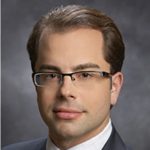
ANDREW ITTLEMAN
Title: Partner
Experience: Fuerst Ittleman David & Joseph, 2006-present
Education: University of Miami School of Law, 2004; Emory University, 2001
What drew you to a career in law? I was drawn to law school because I was an English major in college, and the law felt like a next logical step in my education. I always enjoyed writing and the forensic analysis of words. I was drawn to a career in the law because I worked for some great criminal defense attorneys in law school who taught me that being a lawyer was a very important job that had a real impact on people. It was that part of my education that taught me that this was something I could do for a living.
Have you set a specific goal that you want to achieve in the next year? My firm is moving into new offices in the fall. My goal for the next year is to stay on our current trajectory, and continue to provide a great place to work for all of our employees.
What has been your proudest career moment and your biggest hurdle? My biggest hurdle was losing my partner, Mitchell Fuerst, who passed away in 2016. I had been working with him since 2005, and he was my friend and mentor and my firm's managing partner. As devastating as it was to lose him, what I am most proud of is the work that Chris David, Allan Joseph and I did in the weeks and months following his passing to revive the firm and carry it toward where it is today. We have never been healthier as an organization.
Where do you fit on a 1-10 work-life balance scale with 10 being nirvana? Please explain. Practicing law makes finding a satisfying work-life balance notoriously difficult, and this has been a work in progress for me for some time. The work that I do is difficult and consequential, it takes real time to put out a quality product, and the financial pressures are endless. I am much better than I used to be at forcing a work-life balance, but I still wish I had more time to spend with my wife and son, and it would be nice to not have work on my mind during the precious hours I have at home.
What is the top quality that you've used to succeed in the profession? There is a time and place for everything, including war. But for my day-to-day practice, I have found no skill more valuable than being respectful of everyone I meet.
Who is your favorite mentor and why? Mitchell Fuerst. He asked me to be his partner when I was only two years out of law school and supported me as I explored the law and developed a multidimensional practice. I miss him dearly.
What's the best advice anyone has ever given you? “All I ask is one thing, and I'm asking this particularly of young people that watch: Please do not be cynical. I hate cynicism, for the record it's my least favorite quality. It doesn't lead anywhere. Nobody in life gets exactly what they thought they were going to get. But if you work really hard and you're kind, amazing things will happen.”
— Conan O'Brien on the last broadcast of “The Tonight Show with Conan O'Brien”
What trends are you observing in the profession that you're excited about? There is an enhanced focus on the part of state and federal governments to confront, understand and regulate all varieties of modern technologies, and a corresponding focus on the part of entrepreneurs to comply as the regulations take form. It is a fascinating process and I am most excited to be a part of it.
What is the greatest challenge you see for the legal profession? A consolidation of law firms, combined with expanding in-house legal departments, and a populace that can increasingly obtain legal services without hiring attorneys.
If I weren't a lawyer, I'd be … Writing.
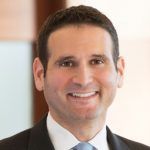
JASON DANIEL JOFFE
Title: Partner
Experience: Squire Patton Boggs (US), 2006-present; Fourth District Court of Appeal, 2005-2006
Education: Nova Southeastern University Shepard Broad Law Center, 2005; University of Florida, 2000
What drew you to a career in law? I always enjoyed advocacy, tended to be analytical and had a penchant for the dramatic. Litigation seemed a good choice.
Have you set a specific goal that you want to achieve in the next year? Continue to grow my practice and build relationships that are mutually beneficial.
What has been your proudest career moment and your biggest hurdle? The trial victories. Biggest Hurdle: Finding complex cases that afforded me lead attorney opportunities.
Where do you fit on a 1-10 work-life balance scale with 10 being nirvana? Please explain. 5. I strive for that balance. Not always easy, but it is a goal.
What is the top quality that you've used to succeed in the profession? Pragmatism. And a willingness to listen.
Who is your favorite mentor and why? I have learned from so many during my career. Couldn't name just one.
What's the best advice anyone has ever given you? Keep it simple (when you can).
If I weren't a lawyer, I'd be … Retired.
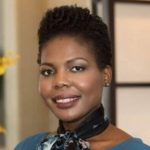
WILNAR JEANNE JULMISTE
Title: Partner
Experience: AndersonGlenn, 2008-present; Rubinton & Laufer, 2007-2008
Education: Stetson University College of Law, 2006; Florida A&M University, 2003
What drew you to a career in law? I was drawn to a career in law due to my passion to serve the disadvantaged and underrepresented. My early experiences as a young Haitian immigrant gave rise to a deep desire to pursue a graduate degree and to assist my local community. I learned that a career in law would allow me an ample amount of freedom to pursue my own professional desires and at the same time an opportunity to help someone who desperately needs help.
Have you set a specific goal that you want to achieve in the next year? I recently achieved my goal of becoming a partner at my firm, AndersonGlenn. My focus right now is to further develop our firm's presence in the Haitian community on the personal injury side of our business and to deepen my existing relationships with our commercial clients.
What has been your proudest career moment and your biggest hurdle? I'm supremely proud of my recent promotion to partner at AndersonGlenn. I worked very hard to develop our Firm's presence in the South Florida area and it was gratifying to have that work validated. On the other hand, due to certain stigmas placed on working moms, it has been challenging to get the merited recognition as a leader in my field.
Where do you fit on a 1-10 work-life balance scale with 10 being nirvana? Please explain. I'm naturally a driven person and apply myself fairly equally in both my personal life and my professional life. However, I am also a realist. I realize that I cannot do everything, and I focus on the activities that will give me the highest return on the goal that I want to achieve. I also recognize that having three small children at home means there will be days when a healthy balance will be elusive. Fortunately, for me, I have a wonderful husband and family as well as terrific co-workers who all allow me to maintain a solid 7-8 on the work-life balance scale. The key is to prioritize and surround yourself with a dedicated and talented team on all fronts.
What is the top quality that you've used to succeed in the profession? My determination has undoubtedly led me to where I am today. It's a quality I naturally possess and has served me well in all aspects of my life, from becoming the first person in my family to excel academically to navigating crucial and complicated cases for my clients. Faced with a challenge, I dig deep and never back down.
Who is your favorite mentor and why? My high school teacher, Joseph Noel, was one of the first teachers to recognize that my untamed tenacity could be honed for academic achievement. Mr. Noel encouraged me to join the debate team where I found a natural talent for reasoned argument and helped me to achieve my goal of attending Florida A&M University for undergraduate school. Even after high school graduation, Mr. Noel continued to offer guidance and kudos as I met and exceeded each new challenge in life. Most recently, Mr. Noel sent me a congratulatory note upon the birth of my daughter. He is a great individual and has taught me a lot about kindness.
What's the best advice anyone has ever given you? I actually have two pieces of advice that I would say are equally as important to me. The first came from a family friend when I was young who advised me to “give and it will be given to you.” I fell in love with the idea of community at a tender age and this idea that you get what you give fell right in line with that. I have been so blessed in my life, and it is very important for me to give to others around me. It's ingrained in my cultural sense of community. The second came from my mother when I first became a mother. She told me, “Before you can take care of someone else, you have to first care for yourself.” While she said this in the context of new motherhood, I have found it applies to many aspects of my work and personal life as well.
What trends are you observing in the profession that you're excited about? Given my background and recent experiences, I'm very excited to see a stronger push for diversity in the legal profession. That is a buzzword that we are seeing more and more, but for me it really means something. I routinely see the benefits generated by different diversity and inclusion committees of the bar. It's not about tokenism, but rather about recognizing the diversity — race, gender, culture, history — that already exists in our communities and highlighting it and recognizing its benefits. Once we recognize that we each bring something different to the table, then we can really get creative in solving difficult issues.
Another important issue is the increased focus on mental health for people in the legal profession. Historically, the legal community has fallen short on providing adequate mental health support to attorneys. Ours is one of the most stressful professions out there, and we need to recognize that fact, remove the stigma attached to seeking help and develop better programs for people who need help.
What is the greatest challenge you see for the legal profession? One of the greatest challenges for the legal profession is the issue of quality versus quantity. New attorneys are still being brought up in environments where the billable hour is the ultimate (and sometimes only) goal. I'm incredibly blessed to be a part of a firm where each attorney, new or experienced, is given ample opportunity to be creative in resolving issues for our clients. The senior partners really take the time to teach the younger attorneys how to effectively litigate with a much lesser emphasis on billable hours. This approach undoubtedly allows for increasingly well-rounded, healthier, and effective attorneys.
If I weren't a lawyer, I'd be … I would be a teacher or professor. No matter the profession, I have a deep-rooted desire to help others.
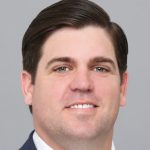
MATT KISSNER
Title: Associate
Experience: Broad and Cassel, 2011-present
Education: Florida State University College of Law, 2011; Florida State University, 2005
What has been your proudest career moment and your biggest hurdle? As a former business owner, my proudest professional moments are when I help an entrepreneur realize their dream. Whether it is a ribbon-cutting for a first store, securing venture capital financing or selling a business, those are the moments that make the long hours worthwhile and give me a tremendous sense of pride.
Where do you fit on a 1-10 work-life balance scale with 10 being nirvana? Please explain. Seven. I've found a nice work-life balance by developing a practice that I truly enjoy and making the most of my time away from work. After my daughter's first birthday last year I decided that Saturdays would become “DADurdays” where I make a point to unplug for the day, leave my phone behind and enjoy family time. No matter how busy the rest of the week may be, having a day to unwind and give my undivided attention to my family helps keep me from getting too far out of balance.
Who is your favorite mentor and why? I have been extremely fortunate to have Patricia Lebow as a mentor and work with her on a near daily basis for seven years. Not only is she a tremendous practitioner and an icon in the South Florida legal community, but she taught me a great deal about the business of law, the art of client service and the power of connecting people.
What's the best advice anyone has ever given you? I'm not sure this was intended as advice, but during my first year of practice I was told that working in a law firm is like being in a pie-eating contest where the prize in more pie. It's an old saying, and a humorous one at that, but it struck a chord with me in that the practice of law can't just be about billing hours year after year or you'll burn out. The “advice” encouraged me to focus on the corporate and securities work that I enjoy and doing so made a tremendous impact on my practice.
What trends are you observing in the profession that you're excited about? The continued integration of technology and the emergence of artificial intelligence in the profession are very exciting. As technology and AI help forward-thinking law firms automate less sophisticated tasks, it will allow us to focus on the analytical, strategic and complex tasks that we enjoy and that carry the highest value for clients.
What is the greatest challenge you see for the legal profession? Interestingly, it seems the trend I'm most excited about in the legal profession may also be its greatest challenge. Practices that rely on a high volume of information processing rather than decision making will likely find that AI systems can perform such tasks more accurately, efficiently and at a far lower cost. While certain firms will embrace the changing environment and thrive, the profession may face significant challenges related to decreased overall demand for lawyers.
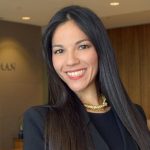
ADRIANA KOSTENCKI
Title: Partner
Experience: Berger Singerman, 2016-present; Moreno Kostencki, 2013-2016; Fowler White Burnett, 2010-2013; Cifuentes Marrero, 2008-2010; Clyde & Co. (Venezuela), 2001-2006
Education: University of Miami School of Law, 2010; Universidad Católica Andrés Bello, Venezuela, 2006
What drew you to a career in law? One of the first English words I learned was “lawyer,” and as long as I could remember, I wanted to become one. I also have a great knack for defending and fighting for those who can't for themselves.
Have you set a specific goal that you want to achieve in the next year? Working with a fantastic group of lawyers at Berger Singerman, my goal is to continue to build and enhance the firm's Latin American practice. One of my strengths, due to living in both U.S. and Latin American cultures, is to assist our Latin American clients in acclimating to the way business is done in the U.S. As a licensed attorney in both Venezuela and Florida, I truly understand the legal nuances and challenges that Latin American business owners and entrepreneurs face when doing business in both countries. It is very satisfying when I see an immigrant succeed in the United States, and it's even more satisfying when I get to be a part of his or her journey. Their success is my success as well as our success as a community.
What has been your proudest career moment and your biggest hurdle? Proudest career moment: I was the first person in my family to move to the U.S. as an immigrant at 22 years old. Ten years later, at the young age of 32, I was honored to join one of Florida's most respected law firms as a partner to lead Berger Singerman's first business immigration practice. I am very grateful for my Berger Singerman family. Every day I count as a true blessing to work with a team that has such a passion for client service and community involvement.
Biggest hurdle: As a Hispanic woman with English being my second language, some former colleagues in business didn't think I was going to succeed. After passing the bar and graduating top of my class, magna cum laude, my colleagues began to realize that I was truly passionate about my goals. For the last eight years, I have worked very hard to show that my passion and perseverance towards success is unstoppable.
Where do you fit on a 1-10 work-life balance scale with 10 being nirvana? Please explain. I believe that “work-life balance” is a myth. I am passionate about what I do for a living and passionate about my family. Everything I do is because I enjoy it and want to make a difference. I have a loving and supportive husband and a smart and happy 11-year-old son, who are my world. We enjoy traveling and going on road trips. We have visited over 30 countries together as a family, and I always have an opportunity to build my business at the same time. Everyone who knows me also knows that I am committed to my family, the community, my partners and my own personal growth. I wouldn't want it any other way.
What is the top quality that you've used to succeed in the profession? I have led, by example, both the Venezuelan American Chamber of Commerce and the Venezuelan American National Bar Association. My passion and care for the Latin American community extends beyond business. My clients see me not only as their lawyer, but an inspiration in the community. This level of respect in the community has offered me numerous opportunities to grow personally and professionally.
Who is your favorite mentor and why? Growing up, my mother was always my rock. At the age of 44, she unfortunately passed away after a three year battle with breast cancer. Her approach to life and adversity allowed me to truly understand what strength ultimately looks like, an attribute I now bring into my life. Today, I feel very fortunate to have different mentors for the different facets of my life. Each of them provides me with a host of perspectives that allow me to think more critically and creatively. I am very thankful for the individuals who have shared some of their busy time to help guide me through my career and personal life.
What's the best advice anyone has ever given you? “No te preocupes, mejor ocúpate.” The English translation: “Don't stress, just take care of it.”
What trends are you observing in the profession that you're excited about? I'm excited to see that more women are taking on leadership roles in law firms and within the community, while supporting other women in their dreams.
What is the greatest challenge you see for the legal profession? While we take advantage of enhanced technological developments, I do believe that artificial intelligence is starting to change how we work with clients, which can take away a personal element if you allow it. This is why relationships with clients is something I build upon every day.
If I weren't a lawyer, I'd be … I LOVE being a lawyer… I went to law school twice! So it's hard to see myself in a different capacity. … I'd probably be a sea captain.
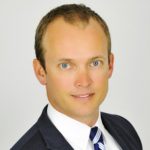
W MASON
Title: Partner
Experience: Fox Rothschild, 2012-2018, Cole, Scott & Kissane, 2008-20012
Education: Tulane University Law School, 2008; Florida Atlantic University, 2006
What drew you to a career in law? Using analytical and problem-solving skills to help business owners achieve results.
Have you set a specific goal that you want to achieve in the next year? Originate more clients, coming up with original and effective marketing initiatives, and spend more time reading and learning about the law and businesses related to my practice.
What has been your proudest career moment and your biggest hurdle? My proudest moment occurred when I made partner at Fox last year. Making the jump from a statewide insurance defense firm to a sophisticated national commercial litigation practice when I joined Fox was challenging. Learning the skills necessary to successfully navigate that transition was more difficult than I expected.
Where do you fit on a 1-10 work-life balance scale with 10 being nirvana? Please explain. 7/8. I have a very comfortable work-life balance at Fox.
What is the top quality that you've used to succeed in the profession? Networking with other professionals led me to my current firm and my client relationships.
Who is your favorite mentor and why? Amy Rubin, the partner who hired me at Fox, taught me both essential legal practice skills and the importance of focusing on business development early in my career.
What's the best advice anyone has ever given you? Train your weaknesses.
What trends are you observing in the profession that you're excited about? Big law firms placing a real emphasis on diversity and inclusion.
What is the greatest challenge you see for the legal profession? Continued insourcing of legal work among institutional clients and the antiquated billing methods i.e. hourly billing.
If I weren't a lawyer, I'd be … In event management and production or in the marine industry.
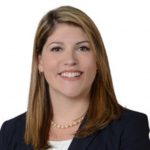
MELISSA MCDAVITT
Title: Partner
Experience: Conroy Simberg, 2008-present
Education: Nova Southeastern University Shepard Broad Law Center, 2007; University of Florida, 2001
What drew you to a career in law? My mother always pushed me to go to law school. She was an office manager at a law office and wrote legal software. I helped out in her office in high school and over college breaks. I didn't think it was for me. Then a few years after college, I was working in sales and assisting lawyers with investigative software products. These lawyers encouraged me to go to law school. So I eventually took the LSAT and the rest is history. Turns out the old adage is true. Mom does always know best.
Have you set a specific goal that you want to achieve in the next year? In my practice, my goals are somewhat nebulous for the next year. I want to keep doing my best work for my clients and my firm. My most specific and immediately goal is the Great Cycle Challenge coming up in June. I have pledged to ride 300 miles and raise at least $500 in support of Children's Cancer Research Fund. You can find out more about the challenge on my personal fundraising page at https://greatcyclechallenge.com/Riders/MelissaMcDavitt/d
What has been your proudest career moment and your biggest hurdle? My proudest moment was making partner at my firm while nine months pregnant. The partnership announcement was January 8, 2015, and my daughter was born 11 days later. My biggest hurdle is mom guilt. As a working parent, you can't always make the parent-teacher conference fit the schedule, and you have to appear by phone or FaceTime. Last December, I was in a courtroom waiting for a jury verdict on my son's eighth birthday. I made it home just in time to wish him a happy birthday in person and kiss him goodnight. Of course the mom guilt was terrible, but my son didn't really mind one bit. We had already planned ahead, and he knew his birthday celebration was coming over the weekend.
Where do you fit on a 1-10 work-life balance scale with 10 being nirvana? Please explain. Work-life balance is more of a sliding scale then a fixed number. Some days it's a 4, other days a solid 8. There are days everything goes just right, a great day in court and out early enough for a frozen yogurt date with the family. Other times, you're up well before dawn and working into the night. Knowing that balance is a moving target makes it more manageable. I have a great support system, especially my husband, that keep it all going when I'm on the move. For the rest of it, I do my shopping online and workout from home. It's not nirvana, but it works.
What is the top quality that you've used to succeed in the profession? Tenacity. Work hard, do the research, get it done.
Who is your favorite mentor and why? This is an impossible question. I have had so many mentors, both personally and professionally, that I can't say I have a favorite. However, most relevant to this discussion is my former managing partner, Edward Winitz. He was my mentor during my first years as an attorney. I tried my first case with Eddie, and he was always there with a red pen ready to review my writing. Most importantly, he taught me to trust my instincts as an attorney. Now I get to try cases with my associates, and I always have my red pen ready.
What's the best advice anyone has ever given you? My father always lectured me on the importance of respect and responsibility. Respect yourself and others; take responsibility for your actions.
What trends are you observing in the profession that you're excited about? Technology in the legal field is the most exciting thing I see going on in our field right now. The ability to go paperless and use digital resources in trial has changed the game. I just tried a case in the new Broward County Courthouse, and it was phenomenal. I can't wait to see the next developments.
What is the greatest challenge you see for the legal profession? Being an attorney in the digital age is challenging. You are always plugged in, and instant responses are often expected. This can be unhealthy. Sometimes the right answer can't be given instantaneously, and even the most tenacious lawyer has to unplug.
If I weren't a lawyer, I'd be … Doing something in a creative field. Maybe interior design or fashion.
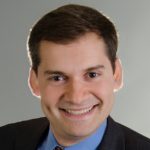
VICTOR PETRESCU
Title: Partner
Experience: Levine Kellogg Lehman Schneider + Grossman, 2014-present; Akerman, 2013-2014; Wargo & French, 2012-2013; Podhurst Orseck, 2011-2012
Education: University of Miami School of Law, 2010; University of Miami, 2007
What drew you to a career in law? I have always been competitive by nature, which drew me to litigation shortly after I realized I did not even remotely possess the requisite athletic ability to play basketball professionally. I was also very into the TV series “Perry Mason” as a child, which really served to demonstrate the importance of being an advocate for those who cannot defend themselves in court.
Have you set a specific goal that you want to achieve in the next year? I don't have anything too specific, but I would like to get a few more trials under my belt in the next year.
What has been your proudest career moment and your biggest hurdle? My proudest career moment has been filing an amicus brief on behalf of Federal National Mortgage Association and Federal Home Loan Mortgage Association in the Deutsche Bank Trust Company Americas v. Beauvais appeal before the Third District Court of Appeal. My biggest career hurdle has been achieving a good work-life balance.
Where do you fit on a 1-10 work-life balance scale with 10 being nirvana? Please explain. Somewhere between a 5 and a 6. I find this to be the most difficult part of the legal profession. There always seems to be more work to do and, as technology continues to improve, it has become harder and harder to disconnect once you leave the office. Getting married and purchasing a house in the last year have taught me the importance of maintaining a healthy work-life balance, and this is something I am working to improve.
What is the top quality that you've used to succeed in the profession? A blue-collar work ethic.
Who is your favorite mentor and why? I have been fortunate to work with a number of amazing lawyers throughout my career and have learned something from everyone I've worked with such that I don't feel I could single anyone out.
What's the best advice anyone has ever given you? There is no point worrying about things that are outside of your control.
What trends are you observing in the profession that you're excited about? The increasing integration of law and technology is exciting. As lawyers, it seems as though we are able to access more information more quickly with each passing year. We are increasingly able to work from anywhere, and are no longer tethered to our offices.
What is the greatest challenge you see for the legal profession? Improving the public's negative perception of lawyers.
If I weren't a lawyer, I'd be … Realistically, a real estate broker because so much of my practice revolves around real property; ideally, a chef because I like to cook and am a big fan of “Top Chef.”
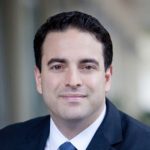
MICHAEL A. PINEIRO
Title: Partner
Experience: Marcus Neiman & Rashbaum, 2014-present; Kobre & Kim, 2011-2014; Law clerk, U.S. District Judge Adalberto Jordan, 2010-2011
Education: Columbia Law School, 2007; Harvard University, 2002
What drew you to a career in law? I have always had a deep passion for the concept of justice, of rectifying wrongs, vindicating the innocent, bringing the truth to light and balancing inequities. Since I was a child, I was moved by books and movies about attorneys who attained justice for their clients against long odds and despite racism or prejudice. Other jobs just never appealed to me. Our profession is a special one because we have the opportunity to ensure that outcomes are just, balanced and fair.
Have you set a specific goal that you want to achieve in the next year? I would like to spend more time writing about the law and contributing to our community's discussion of important legal issues. Now that I have been practicing for 10 years, I feel like I am able contribute to the discussion in a meaningful way.
What has been your proudest career moment and your biggest hurdle? My biggest accomplishment was a trial result obtained last year in Madrigal, et al. v. Kendall Regional, a statutory appraisal case in Florida state court against Kendall Regional Medical Center, an affiliate of a multibillion-dollar public hospital company. I handled the case entirely on my own: pleadings, discovery and trial. The case pertained to a very complex subject area — valuation of an acute-care hospital — in which I did not have prior experience. In 2017, following a bench trial, we obtained a $12 million judgment, which is triple what was offered by Kendall Regional to our clients. In terms of valuation litigation, I believe this is one of the leading results in the hospital industry. The litigation was against Carlton Fields and Tache Bronis.
Where do you fit on a 1-10 work-life balance scale with 10 being nirvana? Please explain. It's a constant struggle. I'm entering a phase of my career where one is expected to litigate at a high level, generate substantial business, and help manage a firm. Our profession is a time-consuming one. So it's always an internal struggle. I'd like to spend as much time with my family as possible.
What is the top quality that you've used to succeed in the profession? Tenacity.
Who is your favorite mentor and why? My partner Dan Rashbaum has been a mentor of mine for the last six to seven years. We are close friends and work well together. Dan is a very skilled trial lawyer and advocate and excellent with clients. I've learned a lot from him in those departments. Also, U.S. Circuit Court of Appeals Judge Adalberto Jordan, for whom I clerked. Judge Jordan is a model jurist and attorney. Brilliant, thoughtful, humble and considerate of everyone before him, Judge Jordan has served as a sounding board and role model for me.
What's the best advice anyone has ever given you? Former Florida Bar President Ray Abadin, reflecting on things he's learned in his accomplished career, advised me to live and practice law more slowly. In a world where find ourselves constantly multi-tasking, rushing from meeting to meeting, and responding to emails on a moment's notice, it's important to take a step back, slow down and live in the moment, to truly focus on the one task or meeting or interaction in front of us, giving it all the attention, thought and consideration that merits.
What trends are you observing in the profession that you're excited about? Clients are more frequently seeking alternative fee arrangements that emphasize results and efficiency. As an attorney who wants to find the most effective, efficient means to resolve a client's dispute, I'm encouraged that clients are offering premiums based on the achievement of effective outcomes.
What is the greatest challenge you see for the legal profession? Technology. Within 20 years, I imagine that there will be computer programs that will be able to perform a lot of the basic duties of a litigator, such as discovery and even legal analysis. Our profession is going to have to learn to adapt to those advanced technologies and use them as a supplement to our practice.
If I weren't a lawyer, I'd be … Working in public policy.
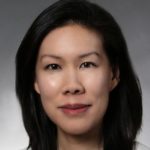
KAREN POY
Title: Partner
Experience: K&L Gates, 2006-present
Education: University of Miami School of Law, 2006; Brandeis University, 2000
What drew you to a career in law? Intellectual stimulation and the ability to earn a steady living for my family.
Have you set a specific goal that you want to achieve in the next year? Bring in more new clients to the firm.
What has been your proudest career moment and your biggest hurdle? Proudest career moment: Making partner at my firm. Biggest hurdle: Difficult (and unprofessional) opposing counsel.
Where do you fit on a 1-10 work-life balance scale with 10 being nirvana? Please explain. Overall 8, but depending on the day, it could be 1 or 10!
What is the top quality that you've used to succeed in the profession? Kindness. You catch more flies with honey than vinegar.
Who is your favorite mentor and why? I really can't just pick one.
Jonathan Morton, partner at K&L Gates Miami, because I've worked with him since 2005 and our working styles complement each other perfectly.
Jeff Kucera, partner at K&L Gates Miami, because he recruited me all the way back in 2004 to be a summer associate in 2005, and the rest is history.
Jerry Novack, partner at K&L Gates New York, because he taught me the importance of living and breathing the facts of each case.
What's the best advice anyone has ever given you? Be yourself. You can't fake it. If you try to be someone you aren't, your body language and words will communicate your uncertainty and artificiality. It's much easier to just be yourself.
What trends are you observing in the profession that you're excited about? Multi-generational aspect: For the first time, four generations will be working together in the workplace: Silent Generation, Baby Boomers, Generation X and Generation Y. This goes hand in hand with the other exciting trend, which is the ever-present impact of technology and social media on our profession. Soon, the Baby Boomers will be retiring, and in will come Generation Z.
What is the greatest challenge you see for the legal profession? Staying competitive and retaining clients. There are so many law firms out there, and it becomes increasingly important for each firm to have individual attorneys with specific niche expertise to attract and retain clients.
If I weren't a lawyer, I'd be … A teacher or a psychologist.
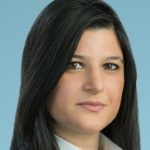
SHANI RIVAUX
Title: Partner
Experience: Pillsbury Winthrop Shaw Pittman 2017-present; Boies Schiller Flexner, 2007-2017
Education: University of Miami School of Law, 2007; Rutgers University, 2002; Universite François Rabelais 2000-2001
What drew you to a career in law? An interest in advocating and being a voice for those who are unable to do so for themselves.
Have you set a specific goal that you want to achieve in the next year? I am working on developing the firm's practice areas and expanding the reach of other practice areas.
What has been your proudest career moment and your biggest hurdle? Proudest moment: Appointment as a guardian ad litem for a child. Biggest hurdle: Wanting to accomplish all my career goals and making enough time to be with my family.
Where do you fit on a 1-10 work-life balance scale with 10 being nirvana? Please
explain. On a day-to-day basis I would put it at a seven only because no matter how much time I spend with my family, it never seems to be enough.
What is the top quality that you've used to succeed in the profession? Integrity.
Who is your favorite mentor and why? Jennifer Altman, Esq. She exemplifies a woman who can have it all. She is a powerhouse litigator who never loses sight of what is important in life.
What's the best advice anyone has ever given you? “Don't mess it up.”
What trends are you observing in the profession that you're excited about? The profession is moving toward increased flexibility in how and where you work, providing an opportunity to attorneys that may otherwise not have had the ability to work in the field.
What is the greatest challenge you see for the legal profession? The intersection between the artificial intelligence in the legal profession and protection of legal ethics.
If I weren't a lawyer, I'd be … I have no backup plan because this profession is the right one
for me.
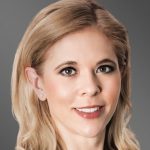
MARINA I. ROSS
Title: Shareholder
Experience: Greenberg Traurig, 2017-present; Stearns Weaver Miller Weissler Alhadeff & Sitterson, 2005-2017; Bilzin Sumberg, 2002-2005
Education: University of Miami School of Law, 2002; University of Mississippi, 1999
What drew you to a career in law? I always felt that law is the perfect career for those who like to solve problems, which is what I like to do. I feel fulfilled when I can help clients achieve their business goals by creating the legal documents that can come to life in the form of an actual project or development.
Have you set a specific goal that you want to achieve in the next year? I would like to increase the number of proactive and strategic meetings that I have with clients because I feel I can provide the best customer service that way. I believe that doing this helps greatly in the process of understanding their business goals.
What has been your proudest career moment and your biggest hurdle? Joining Greenberg Trauig was a very proud moment for me. I worked for years to become a shareholder at a large firm that has an exceptional reputation locally, nationally, and internationally.
My biggest career hurdle to overcome was years ago when I came to the United States from Russia and had to learn English at a very proficient level. It took a great deal of study to achieve fluency and beyond, but it was time very well spent.
Where do you fit on a 1-10 work-life balance scale with 10 being nirvana? Please explain. I'm probably an 8. I know I wouldn't be that far along if I didn't have phenomenal support from my parents, who help with my children. It is a gift to know that all is still running smoothly at home if I am working late or on weekends.
What is the top quality that you've used to succeed in the profession? Tenacity has always helped me succeed. It's what helps me understand what is most important to my clients and then drive negotiations at every level to achieve the results they most want.
Who is your favorite mentor and why? My parents. They instilled my work ethic and my self-confidence, and showed incredible belief in what I could achieve by letting me come to the United States to study even though I was very young.
What's the best advice anyone has ever given you? The best advice I received was: Learn how to let go of things you cannot control. But I have to admit that I am still working at learning this. Sometimes when lawyers do not let go, they impede deals from closing and that obviously does not serve the best interests of any client. Also, those who do not learn to let go of things they cannot control become emotionally driven rather than intellectually driven.
What trends are you observing in the profession that you're excited about? Technology has been an incredible help in real estate law because it facilitates rapid and meaningful understanding for both clients and lawyers of the specifics of certain properties, such as their locations, and positioning in a particular community. This means that business decisions can be made with more information from the very beginning of potential transactions in terms of targeting, evaluating, and underwriting the underlying assets.
What is the greatest challenge you see for the legal profession? The extreme competition in law makes it difficult to differentiate your services from others who are similarly qualified. The most meaningful differentiator for me is the way I provide customer service in terms of responsiveness, availability, the ability to understand clients' businesses, and be proactive on their behalf.
If I weren't a lawyer, I'd be … An elementary school teacher. I strongly value education, which begins at a very young age when it's done well. I would love to be able to give that gift to young children.
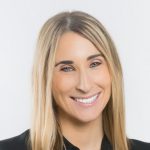
ERICA RUTNER
Title: Partner
Experience: Lash & Goldberg, February 2017-present; Weil, Gotshal & Manges, January 2010-February 2017
Education: University of Miami, 2009; Barnard College, Columbia University, 2006
What drew you to a career in law? I have always been a very passionate advocate for the activities and causes that I believe in, and felt that this skill would suit me well for a career in law.
Have you set a specific goal that you want to achieve in the next year? I hope to continue growing and expanding my class action defense practice while also taking on meaningful pro bono work that will make a difference in the community.
What has been your proudest career moment and your biggest hurdle? My proudest career moment was a hard-fought summary judgment win for a client who was facing bet-the-company litigation and who had entrusted me to lead their defense while I was in the midst of transitioning to a new firm.
My biggest hurdle was making the decision to transition to a new firm. I had amazing colleagues at Weil and a comfortable practice, but I knew that I could do so much more with my career at a Florida-based firm. It was a very difficult choice to eventually leave Weil, but it was absolutely the right decision for me and for my continued development as a class action practitioner.
Where do you fit on a 1-10 work-life balance scale with 10 being nirvana? Please explain. I would say I am at around an 8. As a working mother, flexibility and autonomy is key to making time for both my family and my clients. I am fortunate to have considerable flexibility and autonomy over my schedule, which allows me to attend school functions, doctors' appointments and special events for my children on my own time. Of course, this is balanced against the fact that, as lawyers, we are “on-call” 24/7 for our clients. While this arrangement does require working evenings and weekends, I am much happier to do so with the benefit of being able to make time for my family as needed during the typical work day.
What is the top quality that you've used to succeed in the profession? Attention to detail is probably the No. 1 most important quality that I have used, and seen others use, as the key to success in the law. As the saying goes, “the devil is in the details,” and I truly believe that attention to detail is what makes one side's position stand out above the other and is what leads to a winning legal position.
Who is your favorite mentor and why? Marty Goldberg and Alan Lash, the founders of my firm, have been amazing mentors to me since I started at the firm. They started the firm from the ground up and through hard work, commitment to excellence and true legal brilliance, have developed an incredibly successful firm with institutional clients that believe in them and what they have created. It is inspiring to see what they have accomplished in such a short period of time and I am proud to be a member of their team.
What's the best advice anyone has ever given you? A lawyer who I very much look up to once told me that shorter, simpler sentences are the key to a winning brief. I have taken that advice to heart and find that it has exponentially increased the efficacy of my own writing as well as my editing of others' writing.
What trends are you observing in the profession that you're excited about? There has recently been a lot more emphasis on both work-life balance and mental health in the legal industry. As many are coming to observe, these components are inextricably intertwined and a positive work-life balance is critical to good mental health. I think it is extremely exciting — and an amazing direction for the legal field — that we are all beginning to accept the fundamental importance of these elements for both our lives and our careers.
What is the greatest challenge you see for the legal profession? The increasing use of artificial intelligence in the legal field is concerning. Although AI has its advantages, it will inevitably lead to fewer legal jobs and the shrinking of the legal profession. This will certainly be something that the legal profession struggles with over the next few decades.
If I weren't a lawyer, I'd be … A nutritionist. I have been passionate about health and diet since I was a teenager and continue to stay educated about nutrition for myself and for my family. It is such an important element of our lives, no matter our age, gender or career, and I will always stay interested and up-to-date about the field.
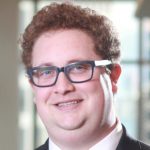
RYAN ROMAN
Title: Partner
Experience: Akerman, 2006-present
Education: University of Michigan Law School, 2006; Amherst College, 2003
What drew you to a career in law? My interest in law developed from an interest in journalism. In my mind, the two share some similarities: the subject of a story is a client, an interview is akin to a deposition and the reader is a juror. Ultimately, I decided to pursue a career in law.
Have you set a specific goal that you want to achieve in the next year? My goals are threefold: to continue to sharpen my skills as a lawyer, to strengthen relationships with clients and peers, and to work alongside members of my team to challenge one another to become better lawyers and people.
What has been your proudest career moment and your biggest hurdle? I'm proudest of what I've been able to help others accomplish, both in their legal careers and in working with community organizations outside of the legal industry. My biggest hurdle is figuring out how to control the things you can't control and learn to accept that every trial, similar to life, will have unexpected twists and turns. Learning how to lean in to those challenges rather than develop anxiety over them requires focus, dedication and flexibility.
Where do you fit on a 1-10 work-life balance scale with 10 being nirvana? Please explain. For lawyers that truly enjoy what they do and don't consider their work just as another profession, the greatest source of fulfillment and “nirvana” is knowing they've delivered excellent results to their client. Being a lawyer is part of who I am and that follows me in other parts of the day.
What is the top quality that you've used to succeed in the profession? Creativity is the most important quality in this profession and one that I am always mindful of using to address the challenges facing my clients.
Who is your favorite mentor and why? All of the members of my team, those who are more senior than me and those who are more junior than me, partners, associates, paralegals and administrative assistants, serve as mentors for me. We each bring different strengths and viewpoints to the discussion and I would not be half as good a lawyer without each of their voices. When we are preparing for trial, every team member's voice is important because we will encounter jurors who think and react like each one of those team members. If I only listen to my own gut, I'm likely going to miss the key themes and how best to communicate them.
What's the best advice anyone has ever given you? As a litigator, the best advice I've received is to be comfortable and to be yourself. I think the most important aspect of effective communication is conveying authenticity. In order to appeal to a juror with authenticity, I need to fully understand and appreciate my client's position and convey an authentic reason why the juror should decide in my client's favor.
What trends are you observing in the profession that you're excited about? I'm excited by the increasing use of design thinking and other creative ways to disrupt the legal profession. Often, litigators write a brief or act a certain way in court because it's custom to do so. I'm excited to challenge myself to approach problems from a different perspective, to challenge myself to come up with new solutions to existing problems and to push the boundaries. Currently, I'm most excited by integrating data visualization techniques into my trial presentations. That's one of the ways I'm looking to bring other outside disciplines into the courtroom in an effort to persuade judges and jurors.
What is the greatest challenge you see for the legal profession? People may point to technology and automation as a threat to all sorts of professions, including legal services. But I believe it is important to embrace new technology and fit it into your arsenal of tools that you bring into the courtroom. So long as disputes are being adjudicated by judges and juries, there will always be lawyers (human lawyers, not robots) advocating for their clients. I can't picture an existential threat to the role of a litigator at trial.
If I weren't a lawyer, I'd be … Working full-time on restaurants in Miami. I'm fortunate to have a fantastic side project with Mignonette and sometimes wonder what it would be like to devote additional time and attention to the restaurant, but I love what I do as a lawyer. Akerman can't get rid of me that easily (but they can get a reservation on a Saturday night).
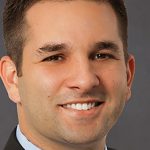
FAUSTO SANCHEZ
Title: Partner
Experience: Diaz, Reus & Targ, 2013-present; Broward State Attorney's Office, 2010-2013
Education: Nova Southeastern University Shepard Broad Law Center, 2010; Florida State University 2006
What drew you to a career in law? I have wanted to be a lawyer as long as I can remember. More specifically, I have always wanted to be a trial lawyer. The more I learned about the career, the more I realized it was what I was meant to do. The pressures and stresses that come with the job can certainly be taxing, but they can also be thrilling and exhilarating. Nothing beats the feeling of executing an effective cross-examination or sticking a devastating closing argument. Once I got a taste of that, I was hooked.
Have you set a specific goal that you want to achieve in the next year? I have. I plan to become more involved and take on leadership roles in legal organizations like the Hispanic National Bar Association and the American Bar Association.
What has been your proudest career moment and your biggest hurdle? My biggest career hurdle was transitioning from working as a prosecutor and practicing exclusively in the world of criminal law to working on complex, international commercial litigation cases. My proudest career moment was successfully litigating and resolving one of those complex, international commercial litigation cases on behalf of 30 different clients across the U.S.
Where do you fit on a 1-10 work-life balance scale with 10 being nirvana? Please explain. Right now, I am probably at a 4. I certainly intend to improve my work-life balance in the future, but I also understand that I am at a point in my career that I cannot afford to be outworked by my competition. If I don't put the sweat in now, then when?
What is the top quality that you've used to succeed in the profession? Following through on what I say I am going to do. Clients need to trust that you are going to do the work they entrusted you to do. Colleagues and coworkers need to know that they can depend on you to do your part to help the team. And your opponent needs to believe you when you make representations about your case.
Who is your favorite mentor and why? I have several, but Michael Diaz has been a mentor of mine for many, many years. He has always given me sage advice regarding the legal profession, much of which isn't written in a book or taught in any law school course.
What's the best advice anyone has ever given you? When I started law school, Michael Diaz told me to begin my career as a prosecutor, regardless of the type of law I'd eventually choose to practice. He told me that the skills you acquire in such a short period of time as a prosecutor are impossible to replicate at any private law firm. He couldn't have been more correct, and adhering to that advice was one of the best decisions I've ever made.
What trends are you observing in the profession that you're excited about? I am excited to see how globalization effects the legal profession. The world is shrinking, and law firms like ours continue to expand their presence into many jurisdictions across the globe. This presents vast opportunities for lawyers to experience new cultures and to service clients in new markets. I have been fortunate enough to have some of those experience thus far in my career, and I look forward to continuing to do so in the future.
What is the greatest challenge you see for the legal profession? Data security. Our profession is relying more and more on technology. And, while “digitizing” the profession certainly has its upsides, it also carries significant risks. Scores of prominent U.S. companies have become victims of cyber attacks. As guardians of sensitive, proprietary and personal information, the legal profession cannot ignore its vulnerability to cyber attacks, and we must increase our efforts to protect and secure client information.
If I weren't a lawyer, I'd be … Maybe an architect? Honestly, I have no idea. I have only ever wanted to be a lawyer, and falling short of that goal was never an option.
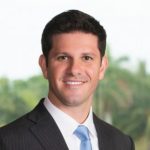
JEFFREY WANK
Title: Partner
Experience: Kelley Kronenberg, 2016-present; Marshall Dennehey Warner Coleman & Goggin, 2015-2016; Colodny Fass, 2010-2015; Cole, Scott & Kissane, 2009-2010
Education: Nova Southeastern University Shepard Broad Law Center, 2009, Florida State University, 2006
What drew you to a career in law? Thought I was a good advocate for my positions and others. Loved the thrill of being a professional and arguing in court.
Have you set a specific goal that you want to achieve in the next year? Continue to grow my practice, mentor my associates and perform great client work/services but most importantly, support my family.
What has been your proudest career moment and your biggest hurdle? Proudest moment was winning a landlord-tenant trial regarding the return of a security deposit for my 85-year-old client, as well as landing my first insurance company as a client. Biggest hurdle was finally gaining the confidence to sell myself in order to bring in business.
Where do you fit on a 1-10 work-life balance scale with 10 being nirvana? Please explain. 7
What is the top quality that you've used to succeed in the profession? Myself/personality
Who is your favorite mentor and why? Howard Talenfeld, who is an advocate for children's rights. He is not only my mentor but a great friend. He has helped me succeed by taking me under his wing and allowing me to grow as an attorney.
What's the best advice anyone has ever given you? There are two types of lawyers: those who work for other lawyers, and those who work for clients.
What trends are you observing in the profession that you're excited about? Remote access and being able to have a better work-life balance.
What is the greatest challenge you see for the legal profession? Not being overtaken by Avvo, LegalZoom and the like.
If I weren't a lawyer, I'd be … Sports coach in some capacity.
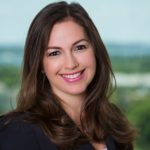
JAMIE WASSERMAN
Title: Partner
Experience: Shutts & Bowen, 2011-present; Ruden McClosky, 2010-2011
Education: Nova Southeastern University Shepard Broad Law Center, 2009; University of Wisconsin-Madison, 2006
What drew you to a career in law? I really enjoy writing and intended on pursuing a career in journalism. However, because I also have a creative side, which lends itself well to problem solving, my parents suggested I consider law. I found that writing, analytical thinking and problem solving are essential characteristics for a lawyer. Because of that, I excelled in law school and my career.
Have you set a specific goal that you want to achieve in the next year? I want to continue to build my practice and carve out a niche for myself within my firm and the legal community as health care litigator. Therefore, this year, I would like to publish articles and participate in speaking engagements to pursue those goals. I have already had two articles published by the American Health Lawyers Association in 2018, so I am well on my way.
What has been your proudest career moment and your biggest hurdle? My proudest career moment was being promoted to partner at the first eligible opportunity. I had two children while I was an associate so the work-life balance has been a challenge, but that has only empowered me to continue pursuing my career and to achieve my aspirations of becoming a partner and I have not let anything come in my way.
Where do you fit on a 1-10 work-life balance scale with 10 being nirvana? Please explain.
I generally fall in the middle – 5. I am very appreciative that Shutts & Bowen is a family friendly law firm and recognizes the importance of succeeding both at work and at home. I am fortunate that I can take my children to the doctor when they are sick, attend their school performances and volunteer my time. I am able to do those things because I work very hard and my colleagues know that the quality of my work product will never suffer. There are certainly many late nights and weekends when I choose to work so I can meet the needs of our clients or attend those school activities and to be a mom during the week, but I am fortunate that my work environment allows me to excel on both fronts. I am also grateful for my husband who picks up a lot of my slack when I need to devote long days and late nights to work.
What is the top quality that you've used to succeed in the profession? Working hard and never giving up.
Who is your favorite mentor and why? Sandra Krumbein, a partner in our Fort Lauderdale office, has been my mentor since I was a 2L in law school and we have an incredibly close bond. She is a superstar attorney and a pioneer in her field. She has helped me navigate life in a big law firm from associate to partner and has always been there to give me advice or just to listen.
What's the best advice anyone has ever given you? Hard work pays off. It seems simple, but I believe that it is true and that you will reap the benefits of hard work in some capacity at some time.
What trends are you observing in the profession that you're excited about? More women are being promoted to leadership roles.
What is the greatest challenge you see for the legal profession? The greatest challenge that I see for the legal profession is the expectation that lawyers need to always be available. We feel compelled to check our email before we go to bed and as soon as we wake up. We don't even take vacations without checking our email every 30 minutes. It would be nice to have more balance, but because clients demand constant availability and we have assented, it feels almost impossible to disconnect from work and to live in the moment.
If I weren't a lawyer, I'd be … An event planner! I have a creative side and I love planning parties – whether it be office happy hours, social events, or birthday parties for kids and adults. Everyone has a fun time at those events, and I love being a part of putting together a good time, from the planning and implementation to the execution phases.
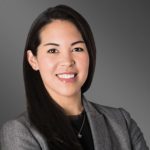
LAUREN R. WHETSTONE
Title: Shareholder
Experience: Greenberg Traurig, 2007-present
Education: University of Florida Levin College of Law, 2007; University of Florida, 2004
What drew you to a career in law? I have always enjoyed challenges in both mathematics and writing equally, so my practice in business law is a perfect fit. I am able to use my skills in both areas routinely to understand my clients' businesses, strategize with clients and advocate for them.
Have you set a specific goal that you want to achieve in the next year? My goal this year is to become even more involved in the community. I have just become involved with the Healthy Mothers Healthy Babies Coalition of Palm Beach County, which seeks to improve birth outcomes and promote healthy families by providing access to care, education and support to those facing the physical, emotional, economic, and social challenges of pregnancy and infant care. As a member of the Advancement Committee, I hope to provide fundraising assistance to help this worthy organization achieve its goals in 2018 and beyond.
What has been your proudest career moment and your biggest hurdle? I felt very proud to become a shareholder of Greenberg Traurig. The firm has an excellent reputation in so many practice areas and I feel honored to be a part of that. I think my biggest hurdle, and my greatest learning experience, came when I was a young associate learning to balance my work litigating so many different types of cases. Once I got used to it and excelled, I felt like I had turned a corner and accomplished something important.
Where do you fit on a 1-10 work-life balance scale with 10 being nirvana? Please
explain. I think I am at a solid 7. Rather than assessing my efforts at achieving balance every
day, I try to consider them over the span of a week or month so I can consider balance in a larger sense. I am really grateful to have quality family time, a meaningful work experience, and the opportunity to give back to the community I grew up in.
What is the top quality that you've used to succeed in the profession? My common sense approach to solving problems has helped me tremendously. Even when dealing with the most complex and intertwined issues, I take a step back and try to find the most practical solution that makes the most sense. On a basic level, a common sense answer is what registers with human beings. I also think communication skills are crucial to attorneys. It is important to tailor each message to the audience you are trying to reach, whether it be a judge, jury, opposing counsel, or a colleague, and to be a careful and attentive listener.
Who is your favorite mentor and why? Retired University of Florida law dean Stuart R. Cohn, who authored “Florida Business Laws Annotated,” is someone I always looked up to as a professor. I felt privileged to work with him as a research assistant. He always emphasized ways to be practical in the practice of law and to find common sense strategies to solve problems for clients.
What's the best advice anyone has ever given you? Be yourself — you can't genuinely be anyone else.
What trends are you observing in the profession that you're excited about? The new technological applications available now for the presentation of information, like those used in a trial setting, are very exciting. There has never been so many ways to present your case in a sophisticated and dynamic manner. Technological advances in general allow attorneys to work smarter and provide more value to clients.
What is the greatest challenge you see for the legal profession? One challenge I see in the age of social media is making sure that the legal profession retains its integrity. Now more than ever, it is important that attorneys find a way to zealously advocate for their clients while still maintaining civility and professionalism.
If I weren't a lawyer, I'd be … A travel guide book editor. I love to travel. It really expands your view of the world and allows you to grow more of an appreciation of the many amazing people and cultures that comprise our global community.
This content has been archived. It is available through our partners, LexisNexis® and Bloomberg Law.
To view this content, please continue to their sites.
Not a Lexis Subscriber?
Subscribe Now
Not a Bloomberg Law Subscriber?
Subscribe Now
NOT FOR REPRINT
© 2025 ALM Global, LLC, All Rights Reserved. Request academic re-use from www.copyright.com. All other uses, submit a request to [email protected]. For more information visit Asset & Logo Licensing.
You Might Like
View All
'None of Us Like It': How Expedited Summer Associate Recruiting Affects Law Students and the Firms Hiring Them

Are Counsel Ranks Getting 'Squeezed' as Nonequity and Associate Pay Grows?
5 minute read

'So Many Firms' Have Yet to Announce Associate Bonuses, Underlining Big Law's Uneven Approach
5 minute readTrending Stories
Who Got The Work
J. Brugh Lower of Gibbons has entered an appearance for industrial equipment supplier Devco Corporation in a pending trademark infringement lawsuit. The suit, accusing the defendant of selling knock-off Graco products, was filed Dec. 18 in New Jersey District Court by Rivkin Radler on behalf of Graco Inc. and Graco Minnesota. The case, assigned to U.S. District Judge Zahid N. Quraishi, is 3:24-cv-11294, Graco Inc. et al v. Devco Corporation.
Who Got The Work
Rebecca Maller-Stein and Kent A. Yalowitz of Arnold & Porter Kaye Scholer have entered their appearances for Hanaco Venture Capital and its executives, Lior Prosor and David Frankel, in a pending securities lawsuit. The action, filed on Dec. 24 in New York Southern District Court by Zell, Aron & Co. on behalf of Goldeneye Advisors, accuses the defendants of negligently and fraudulently managing the plaintiff's $1 million investment. The case, assigned to U.S. District Judge Vernon S. Broderick, is 1:24-cv-09918, Goldeneye Advisors, LLC v. Hanaco Venture Capital, Ltd. et al.
Who Got The Work
Attorneys from A&O Shearman has stepped in as defense counsel for Toronto-Dominion Bank and other defendants in a pending securities class action. The suit, filed Dec. 11 in New York Southern District Court by Bleichmar Fonti & Auld, accuses the defendants of concealing the bank's 'pervasive' deficiencies in regards to its compliance with the Bank Secrecy Act and the quality of its anti-money laundering controls. The case, assigned to U.S. District Judge Arun Subramanian, is 1:24-cv-09445, Gonzalez v. The Toronto-Dominion Bank et al.
Who Got The Work
Crown Castle International, a Pennsylvania company providing shared communications infrastructure, has turned to Luke D. Wolf of Gordon Rees Scully Mansukhani to fend off a pending breach-of-contract lawsuit. The court action, filed Nov. 25 in Michigan Eastern District Court by Hooper Hathaway PC on behalf of The Town Residences LLC, accuses Crown Castle of failing to transfer approximately $30,000 in utility payments from T-Mobile in breach of a roof-top lease and assignment agreement. The case, assigned to U.S. District Judge Susan K. Declercq, is 2:24-cv-13131, The Town Residences LLC v. T-Mobile US, Inc. et al.
Who Got The Work
Wilfred P. Coronato and Daniel M. Schwartz of McCarter & English have stepped in as defense counsel to Electrolux Home Products Inc. in a pending product liability lawsuit. The court action, filed Nov. 26 in New York Eastern District Court by Poulos Lopiccolo PC and Nagel Rice LLP on behalf of David Stern, alleges that the defendant's refrigerators’ drawers and shelving repeatedly break and fall apart within months after purchase. The case, assigned to U.S. District Judge Joan M. Azrack, is 2:24-cv-08204, Stern v. Electrolux Home Products, Inc.
Featured Firms
Law Offices of Gary Martin Hays & Associates, P.C.
(470) 294-1674
Law Offices of Mark E. Salomone
(857) 444-6468
Smith & Hassler
(713) 739-1250






